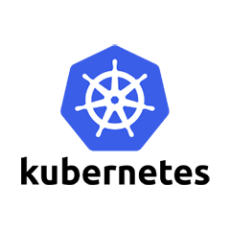Compare Products

|

|
Features * Automatic binpacking - Automatically places containers based on their resource requirements and other constraints, while not sacrificing availability.
* Self-healing - Restarts containers that fail, replaces and reschedules containers when nodes die, kills containers that don’t respond to your user-defined health check, and doesn’t advertise them to clients until they are ready to serve.
* Horizontal scaling - Scale your application up and down with a simple command, with a UI, or automatically based on CPU usage.
* Service discovery and load balancing - No need to modify your application to use an unfamiliar service discovery mechanism.
* Secret and configuration management - Deploy and update secrets and application configuration without rebuilding your image and without exposing secrets in your stack configuration.
* Automated rollouts and rollbacks - Kubernetes progressively rolls out changes to your application or its configuration, while monitoring application health to ensure it doesn’t kill all your instances at the same time.
* Storage orchestration - Automatically mount the storage system of your choice, whether from local storage, a public cloud provider such as GCP or AWS, or a network storage system such as NFS, iSCSI, Gluster, Ceph, Cinder, or Flocker.
* Batch execution - In addition to services, Kubernetes can manage your batch and CI workloads, replacing containers that fail, if desired.
|
Features * Proactive - Monit can act if an error situation should occur, e.g.; if sendmail is not running, Monit can start sendmail again automatically or if apache is using too much resources (e.g. if a DoS attack is in progress) Monit can stop or restart apache and send you an alert message.
* Processes - You can use Monit to monitor daemon processes or similar programs running on localhost. Monit is particularly useful for monitoring daemon processes, such as those started at system boot time from /etc/init/ For instance sendmail, sshd, apache and mysql.
* Files, Dirs and Filesystems - You can also use Monit to monitor files, directories and filesystems on localhost. Monit can monitor these items for changes, such as timestamps changes, checksum changes or size changes.
* Cloud and Hosts - Monitor network connections to various servers, either on localhost or on remote hosts.
* Programs and scripts - Monit can be used to test programs or scripts at certain times, much like cron, but in addition, you can test the exit value of a program and perform an action or send an alert if the exit value indicates an error.
* System - Finally, Monit can be used to monitor general system resources on localhost such as overall CPU usage, Memory and Load Average.
|
LanguagesJava Script Other |
LanguagesOther |
Source TypeOpen
|
Source TypeOpen
|
License TypeOther |
License TypeGPL |
OS Type |
OS Type |
Pricing
|
Pricing
|
X
Compare Products
Select up to three two products to compare by clicking on the compare icon () of each product.
{{compareToolModel.Error}}Now comparing:
{{product.ProductName | createSubstring:25}} X